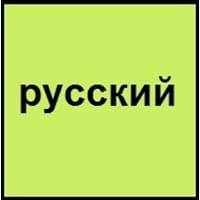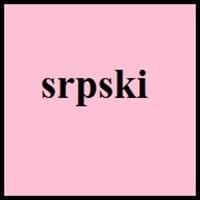Countries
Belarus, Kazakhstan, Kyrgyzstan, Tajikistan
Bosnia and Herzegovina, Kosovo, Serbia, Slovakia
National Language
Russia
Bosnia, Croatia, Montenegro, Serbia
Second Language
Afganistan
Not spoken in any of the countries
Speaking Continents
Asia, Europe
Europe
Minority Language
Armenia, Azerbaijan, Bulgaria, Estonia, Finland, Georgia, Germany, Greece, Israel, Jordan, Latvia, Lithuania, Mongolia, Poland, Serbia, Tajikistan, Turkey, Turkmenistan, Ukraine, Uzbekistan
Croatia, Czech Republic, Hungary, Macedonia, Montenegro, Romania, Slovakia
Regulated By
Russian Academy, Russian Language Institute of the Russian Academy of Sciences
Board for Standardization of the Serbian Language
Interesting Facts
- In Russian language, the words are not pronounced as they are written.
- In Russian language, there are only 200,000 words out of which only few words are used and due to this many words have more than one meaning.
- Serbian language was derived from the Old Church Salvic, as the language was commonly spoken by most of Slavic people in the 9th Century.
- Serbian language is based on Stokavian dialect.
Similar To
Ukrainian and Belarusian Languages
Bosnian and Croatian Languages
Derived From
Proto-Slavic Vocabulary
Not Available
Alphabets in
Russian-Alphabets.jpg#200
Serbian-Alphabets.jpg#200
Scripts
Cyrillic
Cyrillic, Latin
Writing Direction
Left-To-Right, Horizontal
Left-To-Right, Horizontal
Hello
здравствуйте(zdravstvuyte)
Здраво (Zdravo)
Thank You
спасибо(spasibo)
Хвала лепо (Hvala lepo)
How Are You?
Как дела? (Kak dela?)
Како си? (Kako si?)
Good Night
Спокойной Ночи(Spokoynoy Nochi)
Лаку ноћ (Laku noć)
Good Evening
Добрый Вечер(Dobryy Vecher)
Добро вече (Dobro veče)
Good Afternoon
Добрый День(Dobryy Den')
Добар дан (Dobar dan)
Good Morning
Доброе Утро(Dobroye Utro)
Добро јутро (Dobro jutro)
Please
пожалуйста(pozhaluysta)
Молим (Molim)
Sorry
Извините(Izvinite)
Жао ми је (Žao mi je)
Bye
до свидания(do svidaniya)
Довиђења (Doviđenja)
I Love You
Я тебя люблю(YA tebya lyublyu)
Волим те (Volim te)
Excuse Me
извините(izvinite)
Извините (Izvinite)
Dialect 1
Doukhobor Russian
Prizren-Timok
Where They Speak
Alberta, British Columbia, Canada, Saskatchewan
Southeastern Serbia
How Many People Speak
Not Available
Dialect 2
Olonets
Smederevo–Vršac
Where They Speak
Olonets
Serbia
Dialect 3
Novgorod
Torlakian
Where They Speak
Novgorod
Bulgaria, France, Kosovo, Macedonia, Romania, Serbia
How Many People Speak
Not Available
Speaking Population
Not Available
Second Language Speakers
Not Available
Native Name
Русский
српски (srpski) српски језик (srpski jezik)
Alternative Names
Russki
Montenegrin
German Name
Russisch
Serbisch
Pronunciation
[ˈruskʲɪj jɪˈzɨk]
[sr̩̂pskiː]
Origin
1000 AD
11th Century
Language Family
Indo-European Family, Slavic Family
Indo-European Family
Subgroup
Slavic
Not Available
Branch
Eastern
Not Available
Early Forms
Old East Slavic
No early forms
Standard Forms
Standard Russian
Standard Serbian
Signed Forms
Signed Russian
Not Available
Scope
Individual
Individual
ISO 639 6
Not Available
Not Available
Glottocode
russ1263
serb1264
Linguasphere
53-AAA-ea
53-AAA-g
Language Type
Living
Living
Language Linguistic Typology
Subject-Verb-Object
Subject-Verb-Object
Language Morphological Typology
Fusional, Synthetic
Not Available
Russian and Serbian Greetings
People around the world use different languages to interact with each other. Even if we cannot communicate fluently in any language, it will always be beneficial to know about some of the common greetings or phrases from that language. This is where Russian and Serbian greetings helps you to understand basic phrases in Russian and Serbian language. Russian word for "Hello" is здравствуйте(zdravstvuyte) or Serbian word for "Thank You" is Хвала лепо (Hvala lepo). Find more of such common Russian Greetings and Serbian Greetings. These greetings will help you to be more confident when conversing with natives that speak these languages.
Russian vs Serbian Difficulty
The Russian vs Serbian difficulty level basically depends on the number of Russian Alphabets and Serbian Alphabets. Also the number of vowels and consonants in the language plays an important role in deciding the difficulty level of that language. The important points to be considered when we compare Russian and Serbian are the origin, speaking countries, language family, different greetings, speaking population of these languages. Want to know in Russian and Serbian, which language is harder to learn? Time required to learn Russian is 44 weeks while to learn Serbian time required is 44 weeks.





